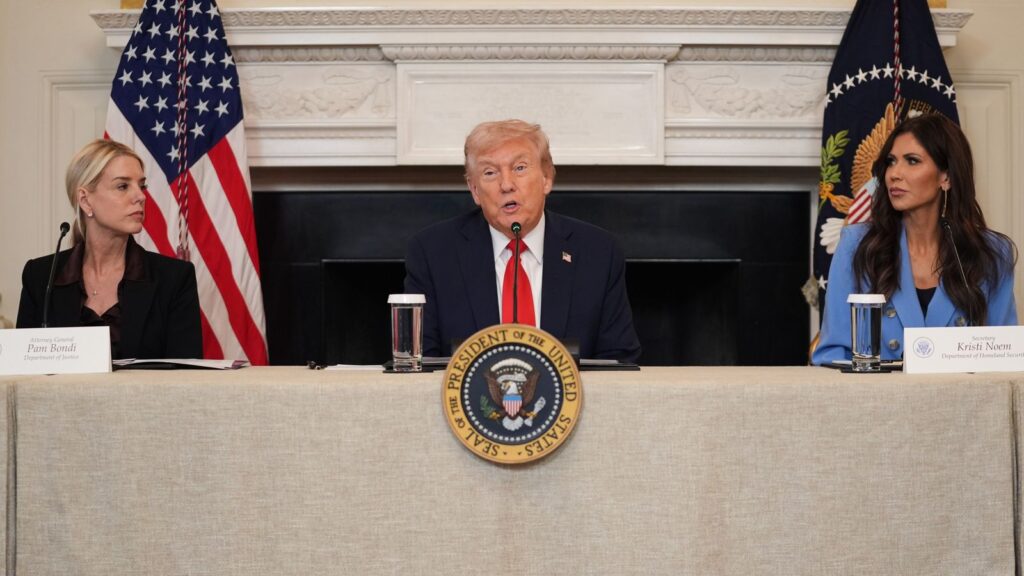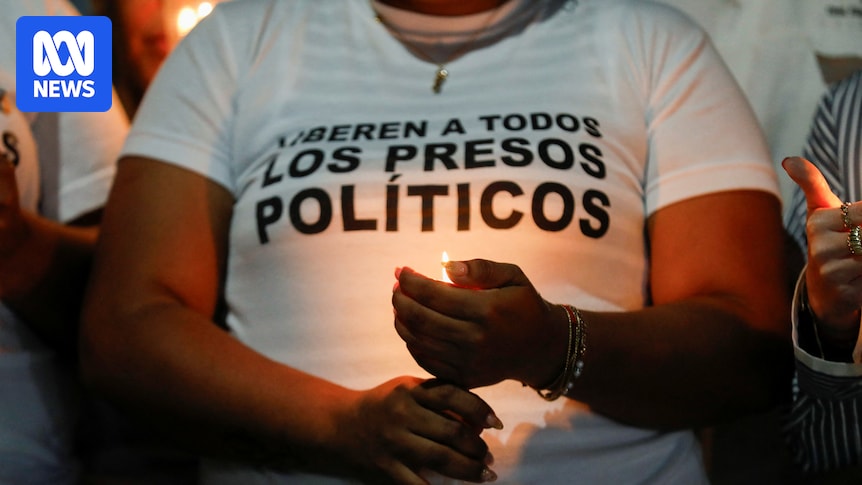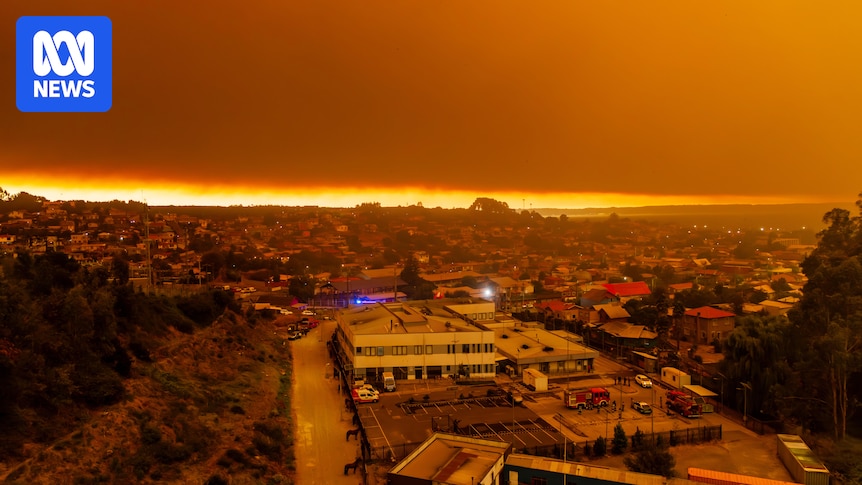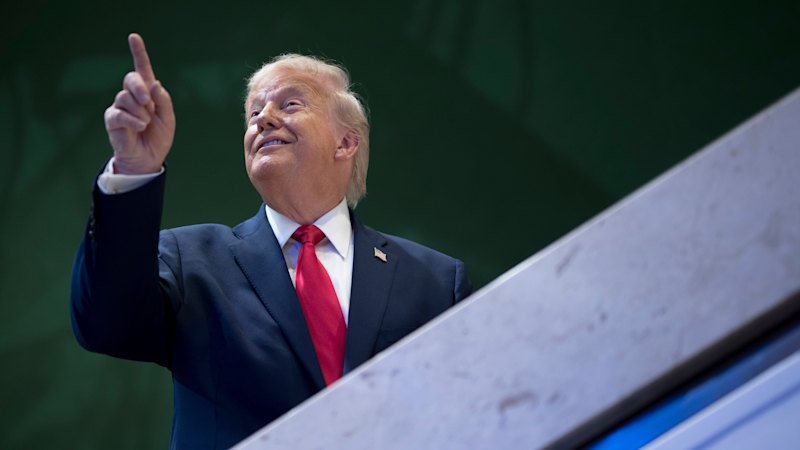
In a move that has sent shockwaves through political circles, President Trump convened a meeting at the White House on Wednesday, ostensibly to discuss “antifa.” However, the gathering quickly drew criticism for its inclusion of far-right figures, including neo-Nazis and Christian nationalists, signaling a potential escalation in political repression and violence.
The meeting, described as a “roundtable on antifa,” featured senior government officials such as Homeland Security Secretary Kristi Noem and Attorney General Pam Bondi, alongside controversial figures like Jack Posobiec, known for his ties to white supremacist groups. The event has been interpreted by many as an alarming indication of the administration’s intentions to legitimize extreme right-wing ideologies while branding anti-fascism as terrorism.
The Gathering’s Implications
This development follows a series of contentious actions by the Trump administration, including the mobilization of the National Guard and discussions around invoking the Insurrection Act. These moves have raised fears of a systematic effort to establish authoritarian control.
During the meeting, President Trump made incendiary remarks about free speech and protests, labeling upcoming demonstrations as orchestrated by a “left-wing terror network.” His rhetoric, along with the presence of far-right figures, has been perceived as a call to arms against political opposition.
Historical Parallels and Expert Opinions
Experts have drawn parallels between the current political climate and historical instances of rising fascism. Mark Bray, a historian and author of Antifa: The Anti-Fascist Handbook, noted the chilling similarities to the rise of authoritarian regimes in the past. “The rhetoric and actions we’re seeing are reminiscent of early 20th-century fascist movements,” Bray commented.
Bray himself became a target following the meeting, as his flight to Spain was mysteriously canceled, raising concerns about potential government interference. He described the incident as a “clear message” that he was being monitored and targeted.
Media and Political Response
Despite the gravity of the situation, the response from major media outlets and political figures has been notably muted. Leading Democrats have largely remained silent, and coverage from major networks has been minimal. This lack of response has been criticized as enabling the administration’s controversial actions.
Organizations like the Democratic Socialists of America (DSA) have issued statements affirming their commitment to free speech, but critics argue that more decisive action is needed to counter the administration’s authoritarian tendencies.
Looking Forward: The Path Ahead
The October 18 “No Kings” demonstrations are expected to be a significant moment of resistance against the administration’s policies. With over 2,100 protests planned nationwide, organizers are preparing for potential confrontations and emphasizing the importance of peaceful protest.
The Socialist Equality Party (SEP) has called for the formation of rank-and-file committees to organize resistance and defend democratic rights. They argue that the fight against authoritarianism is intrinsically linked to broader struggles against capitalism and for socialism.
As the nation grapples with these developments, the path forward remains fraught with challenges. The coming weeks will be critical in determining the trajectory of political discourse and the preservation of democratic principles in the United States.





